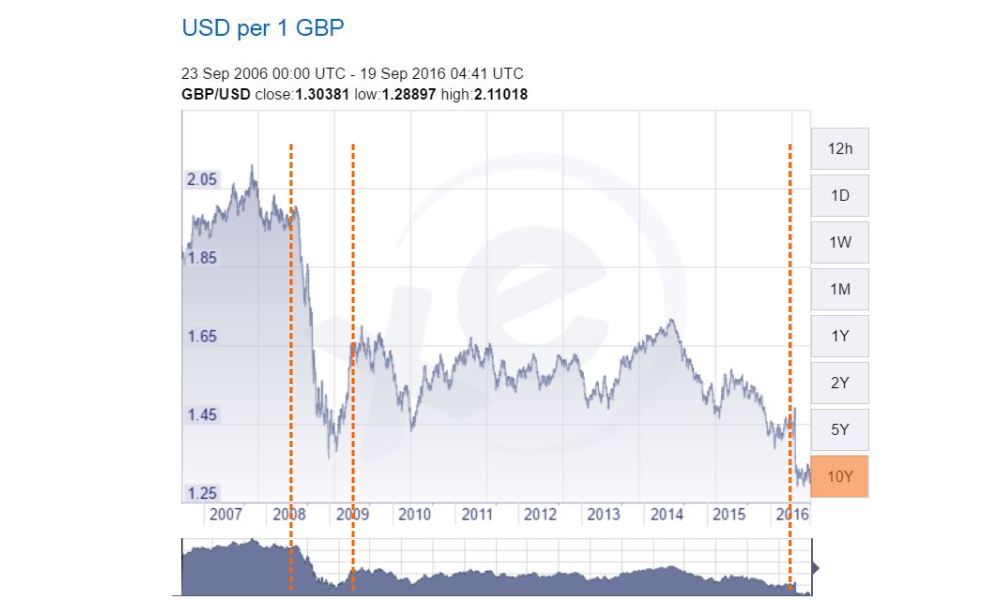Is it really now cheaper to study in the UK?

Afterschool Team
September 21, 2016
Recently, the UK has been taking things more seriously than ever, especially post Brexit. The government in the UK has seen major changes in the people who govern and the policies that are meant to regulate and stabilise the country.
Recently, we have covered stories concerning regulations that are designed to limit entry for international students into the UK and restrict student freedom in the country. Also, we have covered the hike in tuition fees and the continuous increase that is to be expected over the next few years. It seems that these stories suggest a bleak future for education in the UK.
- UK fees go up
- UK desperate for students
- Dreams of studying in the UK up in smoke
However, recent reports are indicating the rise of an unexpected trend. International students are heading to the UK in record numbers, because it is now considered cheaper?
This seems unbelievable because fees have not been reduced. In fact, the average is gone above £9,000 and approaching £10,000 annually.
So what's actually going on? Why students are flocking to study in the UK? Are Malaysian students among them?
According to Western Union Business Solutions (WUBS), a leader in global payment services, tuition fees in 2016 are relatively cheaper than 2015 for international students. This claim seems to be validated by the numbers provided by UCAS where as many as 27,000 will start their studies this September. The numbers show that more EU students are heading to the UK as well.
According to Tony Crivelli, UK and European Managing Director at Western Union Business Solutions, the reason is simply due to a weaker value of the pound: “Studying abroad is not cheap, yet for students coming into the UK from overseas the cost of tuition is much cheaper than it has been for a year due to the relative weakness of the pound. This is great news for international students and means that they can get a world-class degree from a UK university for a much lower price.”
The UK has been one of the most expensive places to study in the world for many years, perhaps it still is for many students out there. However, the dropping value of the pound makes it significantly cheaper for international students this year compared to previous years.
Is this really good news for international students? Well, not necessarily. Even though, UK universities might be more appealing now for international students compared with other destinations like US, Australia, Asia and other regions, it is still more expensive than many other destinations and certainly not affordable to many.
According to the UNESCO's tracking of global flow of tertiary-level students, international students in the UK are from China, India, Nigeria, Malaysia and US, among more than 50 countries.
Moreover, Western Union research indicates the current situation works in favour of the following countries:
Malaysia:
Malaysia is considered as a key and a growing market for the UK. Malaysian students will be able to save up to £2,700 or 22% on tuition compared to 2015 due to the falling prices of the pound.
Singapore and America:
Fees for Singaporean and American students will be 21% and 17% cheaper respectively.
Analysts, on the other hand, are not too sure. Odds might change and might go against the trend. This situation might not remain a favourable one for long.
The other side of the equation is concerning UK students abroad. The odds are already against them. A separate study from foreign exchange provider Caxton FX found that Australian universities are now 22% more expensive for Britons following the UK’s decision to leave the EU, while UK students in Canada and the US will be paying about 16% and 14% more, respectively, for their annual fees.
How much has the pound gone down?
A quick search on xe.com will reveal an interesting set of data regarding the pound exchange rate. Let’s take a look at the GBP rate against the US dollar:
What this graph shows is that the price of the pound had had a dramatic fall between November of 2007 and April of 2009 against the US dollar from US$2.08 for 1 pound - to US$1.36 for 1 pound. Between May 2009 and September 2015, the price fluctuated but remained above US$1.45 for 1 pound. It never recovered its value and has never reached US$2.00 so far.
However, things have changed to the worse. Since June 2015, the exchange price of the pound continued to fall. On the 20th of June 2016 - just few days before the Brexit vote, the price was US$1.46 for 1 pound. A little over two weeks after the famous vote, the price dropped to US$1.29 for the value of 1 pound, the lowest in record since 2008. In fact, even lower than the value in 2008.
The pound is currently fluctuating. However, it has not reached US$1.4 for 1 pound. As of 19th of September 2016, the price fell to US$1.28 for 1 pound, a record low since the big fall in 2008.
So, if we do a quick comparison to examine the fees against the ringgit, here is what we get:
Assuming that the average fees to study in the UK per year is £9,000 in 2015, and the rate of exchange in September of 2015 is at an average of RM6.72 - the highest in 2015, the cost of one year would have been RM60,480.
However, fees in the UK has increased in 2016. Assuming that the fees per year is £10,000, the exchange rate is at RM5.37 as of 18th of September 2016. The cost would be RM53,700 per year.
This is significantly cheaper than 2015's fees.
Is this actually helpful for Malaysians?
At face value, it is indeed helpful because it is in fact cheaper. Students who are able to afford to study in the UK, this would be a good time for them. However, students could be caught out during the duration of their study, should the pound recover.
The other issue that students and families need to pay attention to is the price of the ringgit itself. If the value of the ringgit increases against the pound, the situation would be ideal for Malaysians to study in the UK.
International students from other countries in the UK may have things differently. The situation depends on the country of origin. In the case of countries like Kuwait, Bahrain, Jordan, and Oman, their students can easily study in the UK because the exchange rate of these currencies against the pound are extremely high. For instance, one Kuwaiti Dinar is equivalent to £2.5.
Students from the US, Australia, the European Union, Switzerland, Libya, Brunei, and Singapore can still study comfortably in the UK.
With the current shifts, will we be expecting more Malaysian students in the UK?
Costs, for the longest time, have been the main determining factor to study abroad and this will probably be the case for many Malaysians for the foreseeable future. However, if families and students in Malaysia rely on exchange rates in making their decision, then parents must be prepared for the consequences that come with it.
Exchange rates will change and are highly unpredictable as they are linked to the political and the economic situation. Malaysia is going through rough times and the dropping price of the ringgit is has had an effect on students studying abroad.
Students in Egypt are facing the consequences of a decision they made when the ringgit was doing much better. Now, things have changed and debt is piling up for the students in Egypt. Similarly, students in other countries are facing the same quandary and the situation in Egypt could be mirrored elsewhere easily. So it may be cheaper to study in the UK right now, but will it be the case 6 months down the road?





